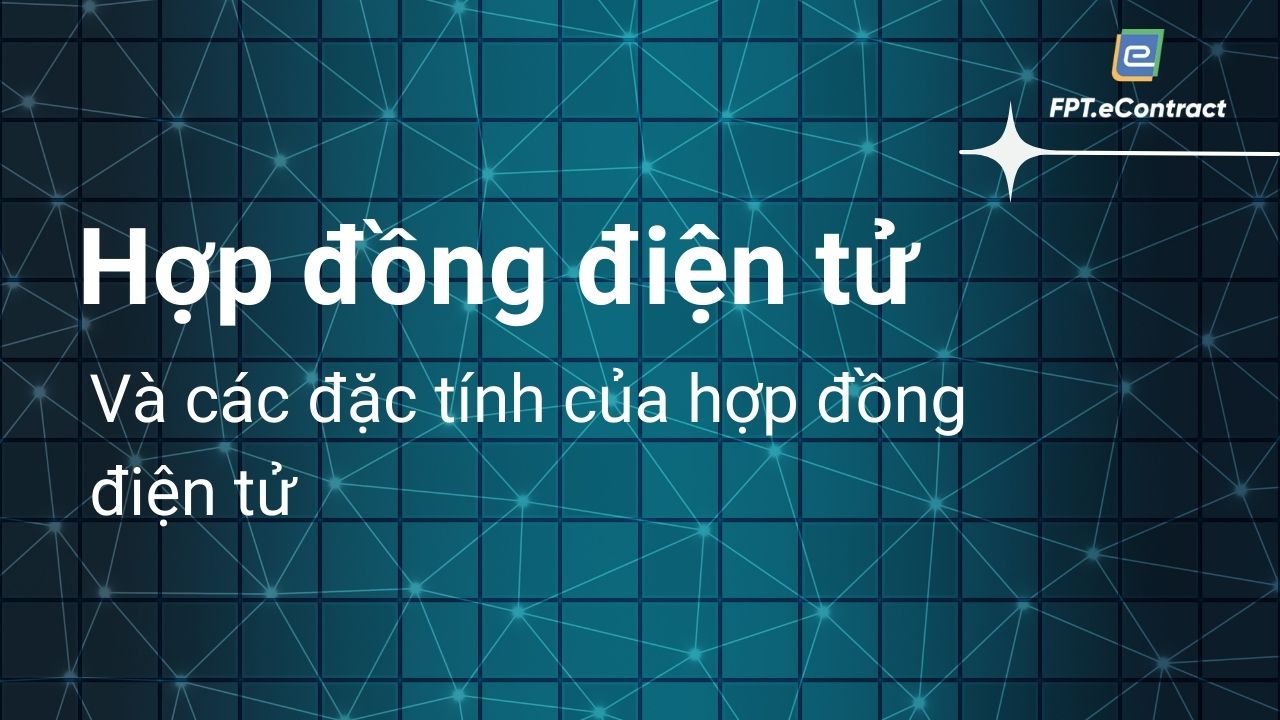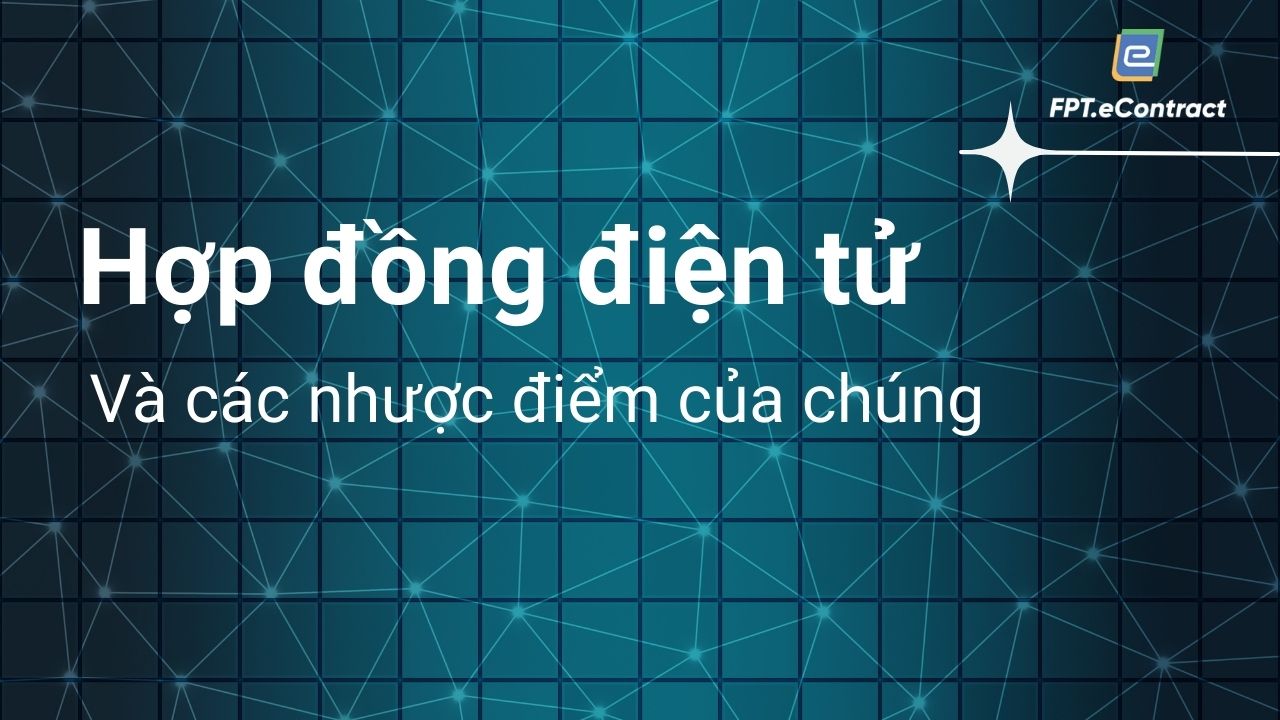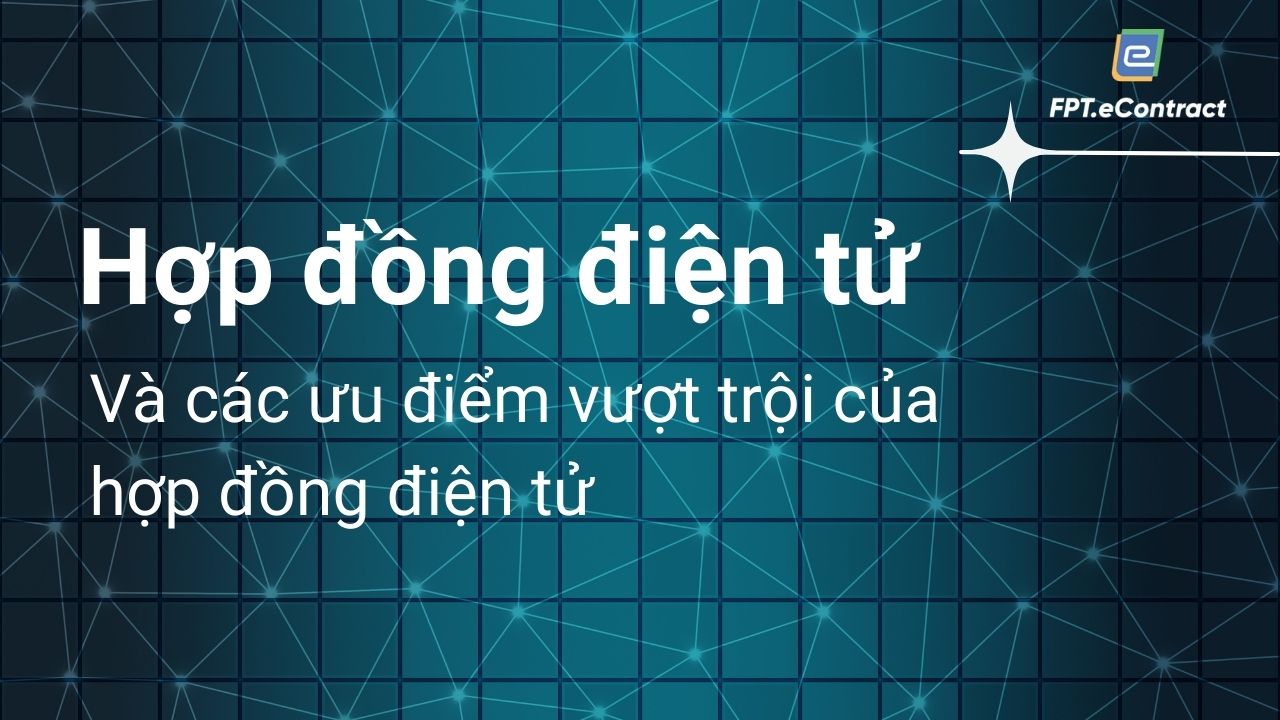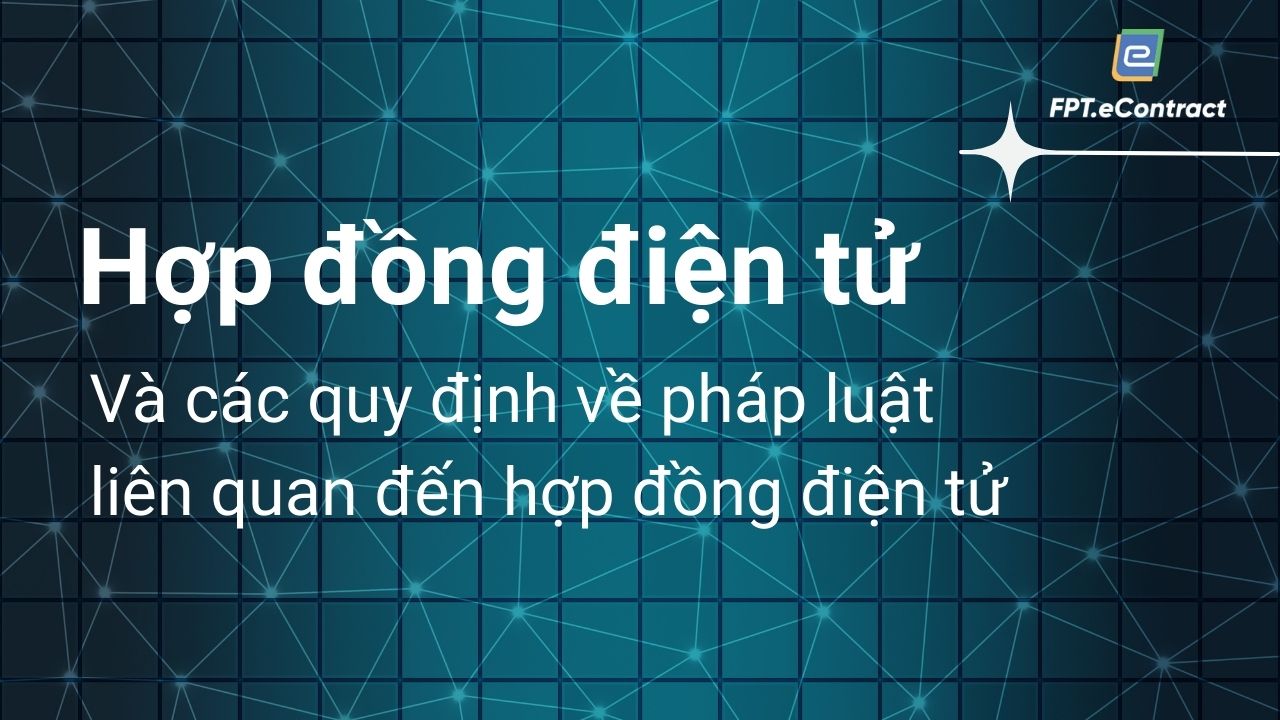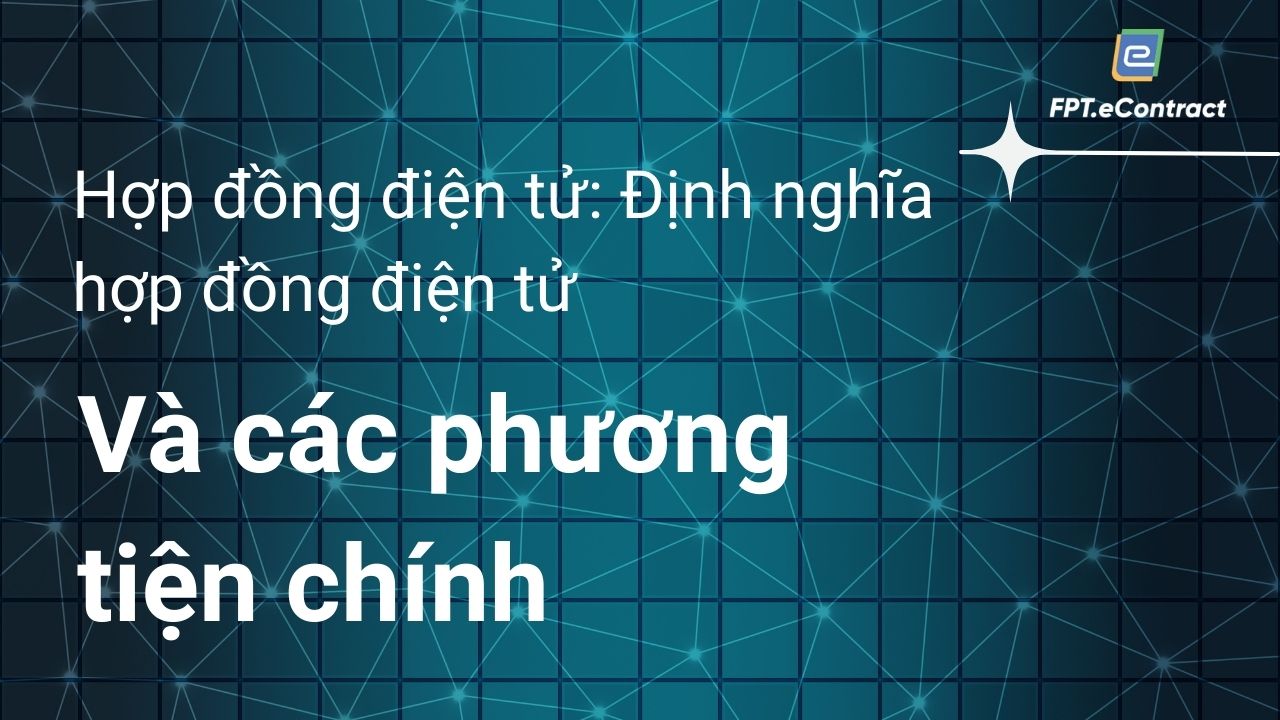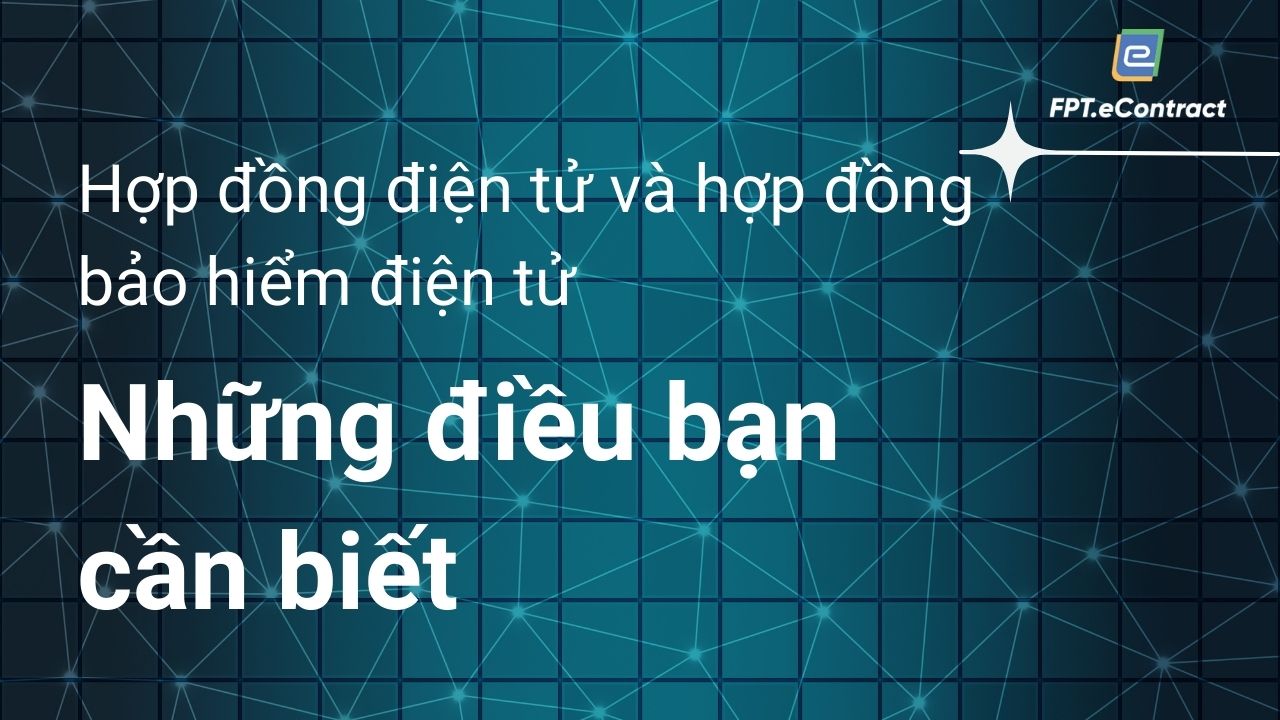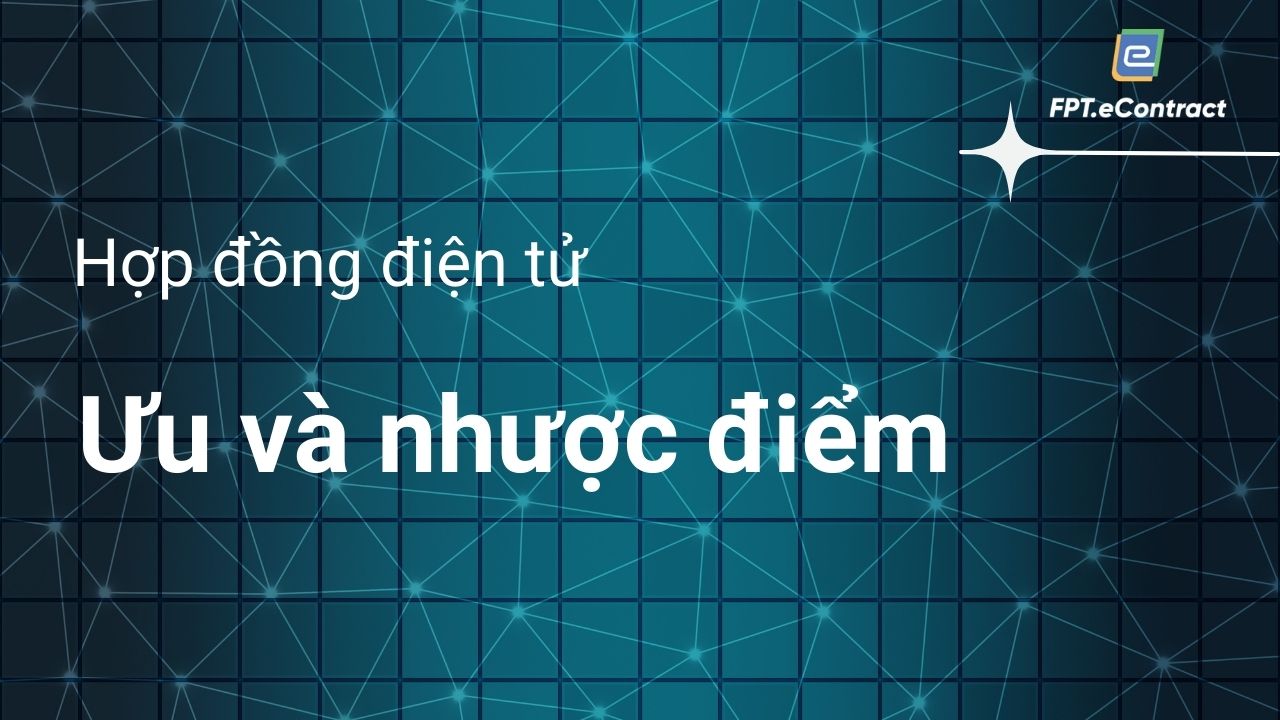In the old days, actually almost a few decades ago, we were all used to doing signatures in a traditional format where wet/ink signatures or physical fingerprints were used to stick as signatures on document. These signatures are nothing but an agreement on the part of the signer that the terms and conditions mentioned in the contract together with the parties known to the signer are accepted by the signer. That directly means he agrees to sign the contract.
However, now that the world has changed, we are all becoming a loyal digital consumer in some way or another. In such a situation, how can we continue to sign the old, traditional way?
Therefore, digital signature software was introduced. The technology is starting to receive good demand in the market and worldwide, necessary laws have been established to regulate this technology and streamline its use for legal support and protected/approved by court of law.
What is an E-contract?
Is an agreement created and ‘signed’ electronically? E-contracts don’t need to use paper. A specific example is a contract you write on your computer to send to a business partner, who will then email back with an digital signature indicating acceptance of the agreement.
Expression by electronic data message
Expression is the most prominent feature of E-contracts. Unless otherwise discussed by the parties, the offer to enter into the contract and the acceptance of the conclusion of the contract shall be expressed through an electronic data message. In signing a contract, there are at least 3 parties involved. In addition to the two ordinary parties such as a paper contract, which are the seller and the buyer, in an E-contract there is also a third party that is closely linked to the E-contract – that is, the parties providing the contract. network service application, and digital signature certification authority.
The third party does not participate in the signing process, but only participates as a support organization to ensure the effectiveness and legality for the conclusion and performance of the E-contract. The scope of application is somewhat limited. Article 1 of the Law on Electronic Transactions 2005 stipulates that electronic transactions can only be applied in a few specific fields: activities of State agencies; in the civil, business, commercial and other fields prescribed by law but not applicable to the issuance of certificates of land use rights, ownership of houses and other real estate, documents on inheritance, marriage certificate, divorce decision, birth certificate, death certificate, bill of exchange and other valuable papers.
Borderless
The two parties to the contract do not need to contact directly because the E-contract is set up in the form of a data message. That is, at any time and place, both parties can actively enter into a contract.
Intangibility, immaterial
E-contracts are intangible and immaterial, that is, they exist, are proven and stored by electronic data that cannot be sensed by touch, because the electronic environment is a digitized environment.
Modernity and accuracy E-contracts are signed using modern technical means, this is the modernity of the contract, and is the result of the development of science, technology and technology in the past this session. From there, it also brings accuracy to the transaction. In the 4.0 era, in the future, E-contracts will be a new trend to gradually replace traditional paper contracts.
Protection of personal data If implementing an E-contract, insurers will need to pay attention to the provisions on the protection of personal data of customers, which are now stipulated in the Law on Cyber Information Security 2015. , Law on Cybersecurity 2018, Law on Information Technology 2006, Law on Electronic Transactions 2005, Law on Protection of Consumer Rights 2010, etc. In addition, the Government of Vietnam is also developing a Decree providing for protection. personal data, which sets out the principles of personal data protection, is generally built on the basis of international practices that insurers will need to refer to[19] and comply with in the future is as follows:
Legal principle: Personal data is collected only in cases where it is necessary in accordance with the law.
Principle of purpose: Personal data is only processed in accordance with the registered purpose, the declaration of processing personal information.
Principle of minimalism: Personal data is collected only to the extent necessary to achieve the defined purpose.
Principle of limited use: Personal data is only used with the consent of the data subject or with the permission of the competent authority in accordance with the law.
Principles of data quality: Personal data must be updated, complete to ensure the purpose of data processing.
Security principles: Personal data protection measures are applied during the processing of personal data.
Privacy Principles: Data subjects are made aware of and receive notice of their personal data processing activities.
Privacy principle: Personal data must be kept confidential during data processing.
Dispute resolution by litigation Along with the implementation of E-contracts, insurers can build data review tools (especially can apply artificial intelligence and big data technology). , equipment security measures are provided to insurance agents to check and detect abnormal signs (deception, profiteering) in order to take timely measures, including refusing to sign a contract. , termination/cancellation of contracts, lawsuits, criminal denunciations, etc.
The results of the above technological measures will exist in the form of data messages, and as stated above, data messages will not be denied the value of being used as evidence and will have proven value in the proceedings if any. reliability is based on factors such as how the data message is generated, stored or transmitted, how to ensure and maintain the integrity of the data message, how the originator is identified, and other factors. other suitable.
In addition, the Civil Procedure Code 2015 and the Criminal Procedure Code 2015 provide that electronic data can be a source of evidence. Therefore, the aforementioned data, if generated based on highly reliable technologies, can be provided to the government agency and can be examined (if further clarification is required) to evidence in the proceedings. The above are some of our opinions related to the implementation of e-contracts in the life insurance business in accordance with Vietnamese law.
Please note that this article is not a comprehensive legal opinion for any particular case. Please consult an expert in case you encounter related legal issues.
- Depends on the web – The key issue with e-contracts is that you need a computer system and a network connection to access the e-contract. This means that you cannot access the contract at a time when you cannot use your computer or electronic device.
- Insufficient storage space – Some companies have limited storage space on their servers making it impossible to save all documents. Possibly saved to third party storage, but may be privacy related in some cases. If the company uses a server that is not tightly protected, it will lead to security problems.
- Risk of system failure – For some reason, the computer system or web server crashes can lead to the deletion of all data from that system, which means the loss of all data. documents related to the contract and even the contract were printed.
- Less secure – Digital signatures have weak or no security, or are more likely to provide tamper protection. So even E-contracts are vulnerable and insecure.
- Reliance on proprietary third-party software – digital signatures used in E-contracts rely on proprietary software, which can be a concern for businesses that do not want to depend on other suppliers in contracting as this may lead to problems of confidentiality or secrecy.
- Reluctance to use E-contracts
– Some people still prefer paper contracts. They may not be willing to accept the idea of an E-contract. It is possible that there is no appropriate software on the system, or simply do not know how to use it.
FPT.eContract or E-contract is used for the following cases:
Bank Finance:
– Open an account at home
– Notice of service agreement change
– Make procedures for loans remotely Insurance
– Open an insurance policy
– Signing vouchers for payment of fees, limit change, renewal
– Signing the voucher of limit change
– Signing Real Estate Contract Renewal Documents
– Sign and pay the rental contract
– Deposit agreement
– Purchase and sale contract Labor contract
– Sign labor contracts for factories and organizations with a large number of employees
– Sign human resource service contracts for seasonal positions
Healthcare
– Register for medical examination and treatment
– Pay fees, sign service invoices
– Signing with partners and service providers for hospitals
Multidisciplinary
– Sale contract
– Brokerage contract
– The order
– Test records
Education
– Contract signed between the School and the teacher
– Contract signed between the school and the student’s parents
– Contract signed between the University and service providers: meals, books, notebooks, extracurricular activities…
– Contract signed between the University and agencies at all levels
Travel
– Framework contract with suppliers, service providers of restaurants, food and beverage, amusement parks – traditional partners, car services, hotels, restaurants.
– Cooperation contract with tourism partners for domestic and foreign transactions in the form of inbound and outbound
– Individual tour contract signed for each incident
– Various internal document files, multi-party signing process, many forms including review, autograph, authenticated personal photo signature, digital signature
For more information, please contact FPT E-contract:
Phone: 1900.636.191
Email: fpt.econtract@fpt.com.vn
Website: econtract.fpt.com.vn/



